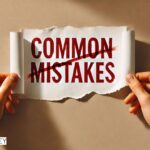We may earn a commission if you click on a product link and make a purchase at no additional cost to you. For more information, please see our disclosure policy.
We all know the basics for interviewing- make a great first impression, make sure the
1. Don’t be late:
I am a fanatic about getting to interviews on time. I make sure I know where I’m going and how long it should take to get there. If I have time, I do a trial run to the location. Once I know how long it should take me to get there, I add 30 minutes on so that I’m there early. There is always an unexpected traffic jam or maybe mass transportation is late.
In most buildings these days, you have to sign in to security and that could take a while if there is a line. No matter how early I am, I don’t let anyone know I’m there until 5-10 minutes before the interview. Getting there too early can be disruptive as well.
Focus on the top things you should remember when preparing for your interview. So what do you need to remember to help ensure you are at your best? Read on.Click To Tweet2. Research the company and the interviewer(s):
Whether or not your job interview is at a company that was on your list, you should know everything you can about the company. What they do, how many employees they have why it would (or wouldn’t) be a good fit for you. LinkedIn is a great tool for this, but you can also look at sites like Fortune.com and Forbes.com to get more information on the company. Don’t forget to look at the LinkedIn profile of the interviewer(s). Lastly, leverage LinkedIn to find people you know who work there (or used to work there) to get the inside scoop.
3. Read the Job Description:
Sounds pretty basic, but you’d be surprised how many people go into an interview without fully reading and understanding the job description. To the interviewer, not knowing the job description will look like you don’t care (or are not qualified). Design your
4. Communications:
Following on from #3 above, communication is a two-way street and you need to leverage both your listening and speaking skills. But communication is not limited to the spoken word, non-verbal communication can be as or more important than verbal communication. Body language, facial expressions, and shaking hands are all important parts of the process. Last, but not least, is eye contact. Look your interviewer(s) in the eyes, and do not look away when answering questions. Be confident in our ability and conviction that you are the best candidate for the job.
5. Prepare Your Sales Pitch:
Let’s face it, an interview is a sales pitch. You are selling yourself and your ability as the best candidate for the job. At some point in the interview, you are likely to have a question regarding your background. Use this time to deliver your pitch. As mentioned in #3 above, include accomplishments that complement the job description. There needs to be a delicate balance between selling and over-sell. Practice your sales pitch with friends and family prior to your interview. Another good technique is to practice in the mirror. One last piece of advice, record your sales pitch and listen back. You are likely to hear things that you will want to adjust before your real performance (and yes, it is a performance).
Above all, try to relax in your interview. This will show that you are confident in your abilities and experience.
Getting a job is like parking. You have to be in the right place at the right time. In How to Interview Like a Pro, author Mary Greenwood provides strategies and practical tips about how to prepare for job hunting and how to interview.
Related posts:
Joey Trebif is the pen name of Mark Fiebert, a former finance executive who hired and managed dozens of professionals during his 30-plus-year career. He now shares expert job search, resume, and career advice on CareerAlley.com.








